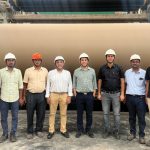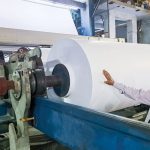Pakka Limited has recently secured INR 244.7 crore as part of their INR 750 crore expansion in India and moved ahead with Project Kawok in Guatemala to cater to the North American market. Domestically, the brand plans to expand in Ayodhya with Project Jagriti which is a game changer for the brand as well as the food packaging industry. This will be the world’s first facility for compostable and recyclable paper based flexible packaging solutions. Currently operating in over 40 countries, it is now focusing on expanding into the untapped U.S. market, while also targeting tier 2 and tier 3 cities domestically. In an exclusive interview with Paper Mart, Mr. Ved Krishna, Group CEO, Pakka Limited, talks about the new development, funds allocation, and the strategic expansion strategy of the brand that will take the company and its compostable solutions to the next level.
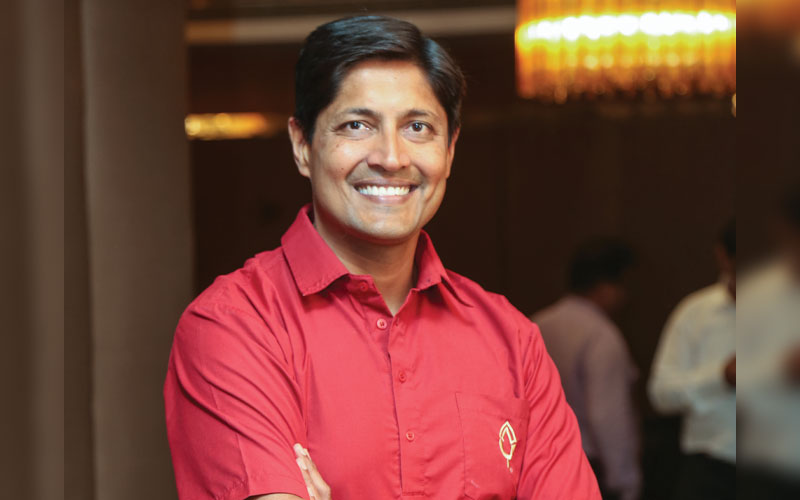
Paper Mart: How do you see Pakka’s positioning in the market? What are the major milestones that you would highlight that are crucial to your achievements?
Ved Krishna: Pakka is a key innovator and provider of compostable packaging solutions for FMCG products, food service, and the hospitality industry with a strong focus on solutions made of agri-residue. The key for Pakka is to provide effective products while ensuring lower ecological impact.
We have been working towards food service and packaging solutions for over 10 years now. Our commercialization of CHUK moulded fiber products has led to an entire opening of an industry in India. The market growth has been tremendous and we see a lot of substitution being enabled. We have now commercialized our flexible packaging solution with Brawny Bear chocolates and are working on expanding the customer base now.
Project Jagriti in Ayodhya will provide over 30,000 TPY of barrier coated solutions enabling some scale in the sector. This is just the start. The market is huge and will need much more capacity to be able to make a shift.
We are investing significantly in our R&D capability which would enable us to work with others and innovate solutions for the future.
We, as an organisation are focussed on contributing towards a cleaner planet which means we have to scale beyond our limited capabilities. The first step is to extend our global footprint through Project Kawok in Guatemala, aimed at serving the North American market with our eco-friendly packaging solutions.
PM: What set you apart from the competition, and how your brand’s DNA has evolved since its inception?
VK: Pakka’s core differentiation lies in our innovation capabilities and learning from nature. The products created by Pakka are 100% compostable and toxin-free, making them suitable not only for end consumers but also for organizations that seriously consider sustainability goals and want to make a positive mark on the planet.
Since our inception, Pakka brand DNA has evolved from being a paper manufacturing company to a becoming comprehensive sustainable packaging solutions provider.
We don’t really believe in the idea of ‘competition’. We find ‘collaboration’ a greater possibility for building towards impact. Each one of us wants to do good work and greater possibilities can be achieved when we combine forces for transformation.
We are evolving towards becoming a more ‘solutions’ and customer-centric organisation. It is a journey where absolutely amazing guides are appearing to take us forward.
Pakka’s secret sauce is its team and the culture we are blessed with. We work together through good and difficult times and we also find that amazing talent is joining this already powerful set of people which is the most crucial ingredient for success for any organisation.
Watch: In Pursuit of Lesser Water Footprint
PM: How does Pakka plan to allocate the recently raised INR 244.7 crore funding?
VK: The equity raise is part of a larger capital raise that will enable our foray into scaling flexible packaging solutions. The funds will primarily be used to scale up our production capabilities, particularly in establishing the world’s first compostable flexible packaging facility in Ayodhya, named as Project Jagriti. This will significantly double Pakka’s production capacity, helping us meet the growing demand for regenerative packaging solutions for chocolates, nutrition bars, granola bars, and more.
Pakka also aims to invest a portion of its funding in research and development to manufacture more products in the compostable flexible packaging category.
PM: Please shed some light on your ‘world’s first compostable flexible packaging facility’ in Ayodhya. What competitive advantages will this bring, in terms of production capacity, market reach, technology and product diversification?
VK: The Ayodhya facility expansion with Project Jagriti is a game changer for Pakka and the food packaging industry as a whole. This will be the worlds’ first dedicated facility for compostable flexible packaging at scale.
Our expansion efforts under Project Jagriti will double our current production capacity, positioning us to effectively meet primarily domestic demand. We are already working with various customers to alter their packaging and aim to attract a diverse clientele, including major FMCG brands seeking sustainable packaging solutions.
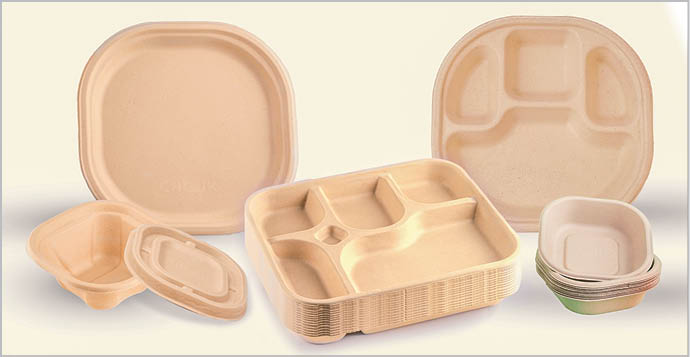
The new facility will be equipped with cutting-edge technology sourced from Europe, setting a new standard for precision, quality, and scalability in compostable packaging production. This advanced infrastructure will not only elevate our production capabilities but also enable us to maintain the highest standards of quality.
Project Jagriti will also support our efforts in product diversification. By expanding our portfolio beyond traditional food wrap, carry, and service products, we will be able to develop innovative compostable flexible packaging solutions tailored to the needs of multiple industries, further solidifying our leadership in the sustainable packaging sector.
PM: How Pakka’s product basket diversified over the years? In what sectors are your products majorly used and what new sectors are you eyeing?
VK: Since 1981, Pakka has significantly diversified its product portfolio. Initially, the focus was on producing low-grammage poster paper for varied sectors; however, the focus has shifted to only redefining the food packaging industry with sustainable solutions.
Our comprehensive product range includes food wrap and carry solutions featuring specialized papers for carry bags, as well as bleached and unbleached kraft paper, commonly used in products such as sugar sachets, pouches, takeaway bags, and envelopes.
In the food service sector, our flagship brand, Chuk, stands as India’s leading provider of disposable bowls, plates, meal trays, and delivery containers. Made from sugarcane bagasse, these disposables are widely adopted by restaurant and QSR chains across the food service and hospitality industries.
Building on over a decade of innovation and collaboration with global researchers, Pakka has introduced the world’s first compostable flexible packaging specifically designed for the FMCG sector. Moving forward, we aim to fully expand our clientele in the FMCG sector.
That said, we believe in focus instead of diversification. We will keep consolidating our offerings both in the food service and packaging segments and will look to provide a narrower set of effective products in the coming times.
PM: Kindly explain the distribution model. What new models are you targeting and who are your major customers?
VK: The key to any distribution is to reach the customer effectively through a strong, entrepreneurial, long-term relationships. Each country has its own nuances and we are adjusting as we work wider across the globe. We need to build the shortest possible route to the user of the product and will continue to explore options for disruption through technology and partnerships.
Our distribution model is tailored to the unique requirements of each product category to ensure efficient delivery and customer satisfaction.
For food wraps and carry solutions, we utilize a traditional distribution model, collaborating with around 50 authorized partners globally. These partners are responsible for converting the paper products and supplying them to bakeries, groceries, and various businesses in the food packaging sector. Major customers include Borosil, Malpani Group, Gulf Carton, and Uflex.
In the foodservice sector, Chuk’s compostable tableware is distributed through a combination of channels. We have 23 authorized partners, with 16 present in India and the remaining located overseas, who are responsible for selling our products.
Additionally, Chuk’s products are available on leading e-commerce and quick-commerce platforms such as Amazon, Blinkit, Swiggy Instamart, BigBasket, JioMart, and DMart’s online stores.
We also have partnerships with prominent retail chains, including Lulu International, DMart, Metro Cash & Carry, 24×7, and MK Retail. Our major customers in this segment include Haldirams, Taco Bell, Chai Point, Lulu International, DMart, and Metro Cash & Carry.
For flexible packaging, we follow a traditional distribution model where the coated compostable flexible packaging is supplied to authorized distributors. These distributors then deliver the final products to FMCG companies like Brawny Bear.
To further enhance our distribution capabilities, particularly for our compostable tableware segment, we are actively seeking strategic partnerships with logistics providers to improve last-mile delivery and ensure timely and efficient service to our customers.
Also Read: Aryan Paper Mills: Supplier of Optimal Packaging Solutions
PM: Can you elaborate on your partnership with nutrition company Brawny Bear on compostable flexible packaging products?
VK: Pakka’s partnership with Brawny Bear is pivotal in bringing our compostable flexible packaging product to reality. This collaboration not only strengthens our commitment to sustainability but also helps Brawny Bear differentiate itself in the market by using eco-friendly packaging solutions that resonate with their customers. With their support, we now aim to approach larger FMCG brands, providing them with relevant sustainable packaging solutions that align with their needs and sustainability goals.
PM: How do you plan to enhance your business presence in India as well as overseas?
VK: To enhance our presence in India, we plan to increase our distribution network by partnering with more retail chains and expanding into tier 2 and tier 3 cities. Globally, we’re focusing on entering new markets, especially in the Middle East. The United States will be our next major expansion target, as we already have a team set up there.
PM: Please discuss some of the challenges you have been experiencing in the industry.
VK: The primary challenge is always our own mindset. We have to believe that we are capable of creating products that enable the customers and provide value to them. The possibilities emerge once we become clear about our intent.
The remaining challenges are primarily to do with the journey- those are what makes business both exciting and challenging. These challenges include building the right solutions and convincing the customer to try them. We need to ensure that there is value creation for the customer in the process. We need to set up the right supply chain, scale and production abilities to service the market. We need to distribute effectively. We need to enable policy frameworks in various geographies for them to make sense for the future of humankind on planet earth.
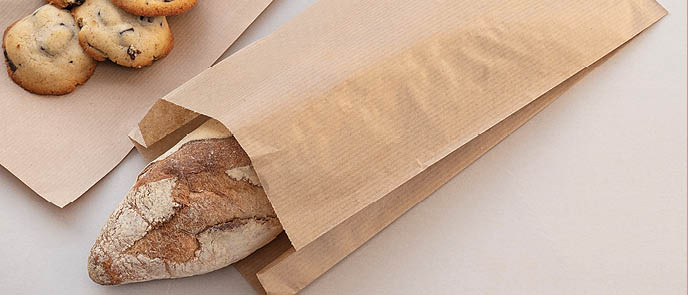
PM: Please share details about your recent developments at Pakka Inc (USA). Where do you see yourself five years down the line?
VK: There is significant work that we have done in the past couple of years to understand, establish and enable our international foray.
We have begun to seed the markets in the America’s and our products are being received very well. There is a strong team that is evolving. We are in the middle of a large fund raise that looks positive. We are building various partnerships for technology, innovations and distribution.
The land in Guatemala has been finalised and basic engineering is complete. The next phase for building a special economic zone is starting and we getting into the stage for technology finalisation.
The next 2-3 years will be all about execution for us. We will look to effectively set up projects in Ayodhya and Guatemala along with various co-manufacturing possibilities that we are building. We will strengthen our R&D and collaborate more widely for solutions.
The main idea for us is to provide materials at scale. That is central to our purpose and growth. Our plan is to grow over 20x in the next 5 years and that is just the beginning.


